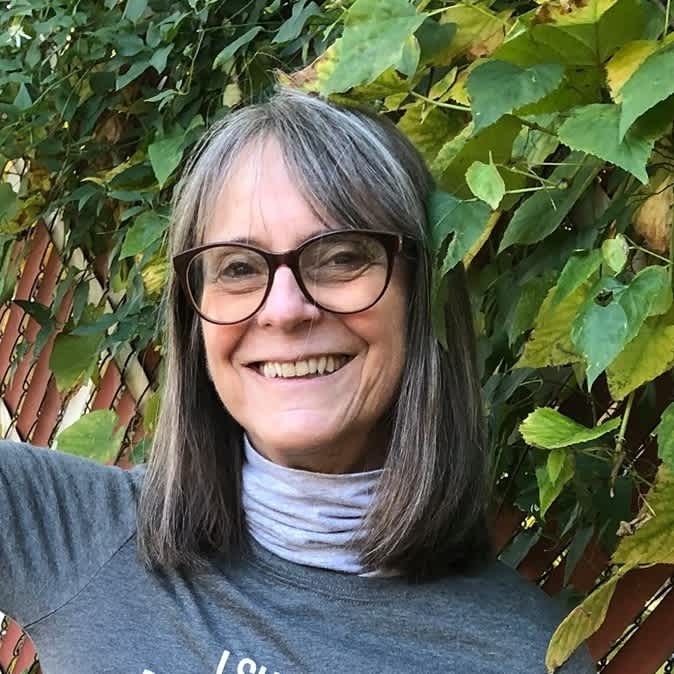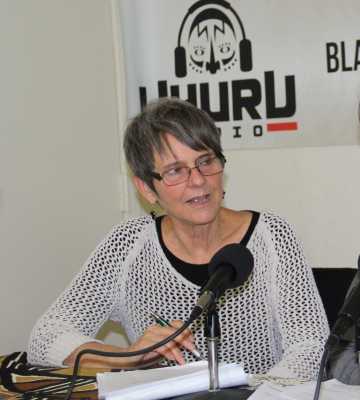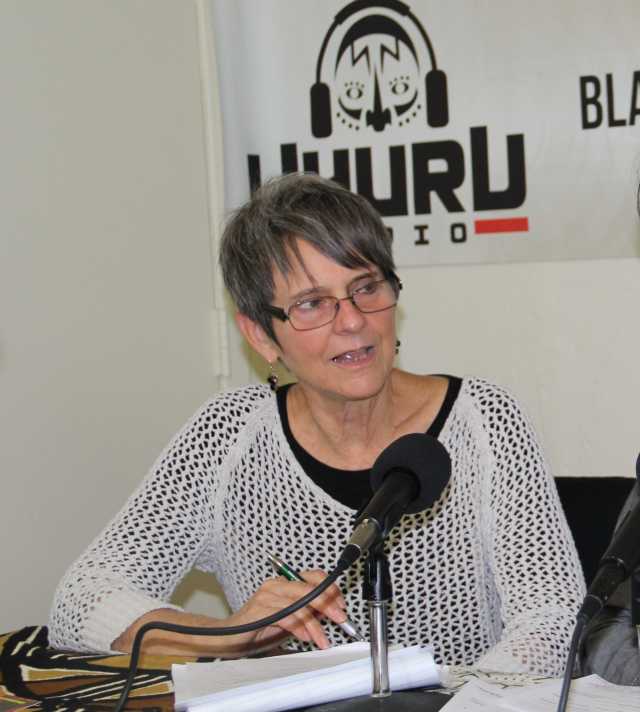On Sunday, December 7th, Jamie Simpson of the Uhuru Solidarity Movement, the host of the weekly radio show Reparations in Action (RIA) on UhuruRadio.com, sat down with Penny Hess, Chairwoman of the African People’s Solidarity Committee, for a thirty-minute discussion on Ferguson, social justice, and the role of white people in the African liberation movement.
APSC and USM are organizations of white people that work under the leadership of the African People’s Socialist Party to organize in the white community for reparations to African people. In the excerpt below, Chairwoman Hess addresses the ongoing debate around the role of so-called “white allies” in the black community’s struggle for justice and freedom. The African People’s Solidarity Committee will be holding its national conference, “Not One More Black Life!” on January 11-12, 2015 in St. Petersburg, Florida and all members and supporters of USM are urged to register and attend.
Reparations in Action is on UhuruRadio.com every Sunday 1pm eastern. The complete interview with Penny Hess can be heard here.
RIA: There have been a number of articles distributed online by various bloggers and leftist organizations about the role of “white allies” in the Mike Brown and Eric Garner struggles. One piece in particular published on The Root by Janae Woods, entitled, “Twelve Ways to be a White Ally to Black People” stated: “People of color cannot and should not shoulder the burden for dismantling the racist white supremacist system that devalues and criminalizes black life without the all-in support, blood, sweat and tears of white people. If you are not already a white ally now is the time to become one.”
At a demonstration held in Toronto on November 25th, a set of “rules” were distributed by the organizers on how the white people should conduct themselves. White people were told to stand in the back. It is clear that the movement at large is attempting to deal with this question of the role of white people in the Black Liberation Movement. How does the Uhuru Movement and specifically the African People’s Solidarity Committee and the Uhuru Solidarity Movement deal with this question?
PENNY HESS: I think that the theory of Chairman Omali Yeshitela, his worldview is, really becoming popularized and people are grabbing at different things, different parts of that and putting it together. That’s also true of the Chairman’s understanding of the solidarity movement [which defines that white people must be under the leadership of African people] so African groups and even white people can begin to say, here’s something about the white people’s relationship with African people.
But it really isn’t enough to be an ally, because that is completely unaccountable. APSC is in an accountable relationship under the leadership of the Party and the Party’s strategy and that is a different thing because that is truly accountable.
So you have “12 ways to be an ally” — what does that mean, you choose 4 of them or something? That doesn’t change your material relationship to African people. What does change that is a principled stand of solidarity under the leadership of the African revolution. But I think it’s important that these ideas are being put out there. They come from this movement
We have to keep struggling around it. I’ve heard about the struggle in Toronto. I think it’s really important, this whole idea of rules. We can see this in a lot of the demonstrations that we’ve been in that don’t have such rules, you know, so that white people can do whatever they want and you see the African community in a very serious militant stance and the white people are laughing or playing a drum or wearing a stupid mask of some sort, you know, playing games in it and treating it very lightly. So I can see that. But again, those kind of rules, that’s very influenced by the African People’s Socialist Party and the Uhuru Movement so I think that’s important and it shows that African people are beginning to set the terms for what the relationship of white people will be. And I think that’s very significant.
NOT ONE MORE BLACK LIFE!



